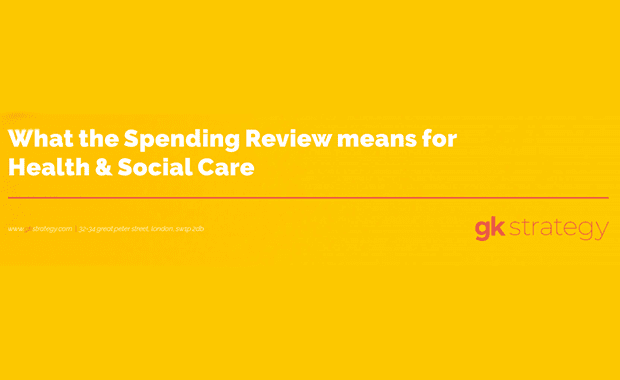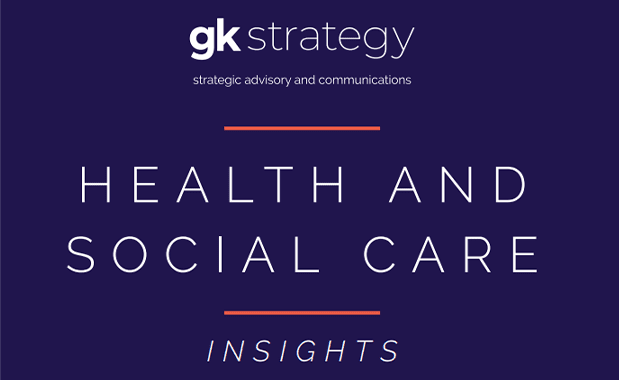The Comprehensive Spending Review has been dialled back in ambition but will still set the future direction of departmental spending and will impact on policy development, writes Rt Hon David Laws, former Cabinet Minister
It is commonplace these days for large parts of Budgets and Spending Reviews to be leaked in advance, so it is no surprise that we have already learned that in next week’s Spending Review the Defence budget will get a boost, while Overseas Aid faces cuts – as yet, of an uncertain size.
This Spending Review is arguably less important than when it was first announced, many months ago, because at that stage it was designed to be a long term review, setting out spending plans for the next three years. The Treasury has now understandably got cold feet about long term spending plans, when there is so much uncertainty about the size of our economy next month, let alone in three years’ time. So, because of COVID, most budgets will only be set for the financial year ahead (incidentally one-year settlements are the norm across many western nations).
But to conclude that the Review no longer matters would be a big mistake, for three reasons. Firstly, it will allocate hundreds of billions of pounds over the next year, and it could involve some big changes in priorities. Budgets such as health, business support and welfare could be increased dramatically due to COVID related pressures. Other budgets could also face a big squeeze, as the Treasury fights to prevent a further upward spiral in public borrowing.
Secondly, while budgets for day-to-day spending may only be set for a year, the allocations for “capital spending” could be set for much longer periods – perhaps even up to a decade. These days the Treasury accepts the case for longer term capital budgets for infrastructure spending, in areas such as transport, housing, defence equipment, and school building. And with interest rates at historic lows, money for such projects can be accessed incredibly cheaply – meaning that productive investments can be made for a zero or even negative real cost. In some policy areas departments have been pressing for longer term capital budgets than have been usual in the past (for example school buildings), and it will be interesting to see if the Treasury is willing to allocate more capital spending for 5-10 years, rather than the usual three.
Finally, this is our first real opportunity to see the spending priorities of what is, after all, essentially a new government. While much will be distorted by the near term imperatives of responding to the COVID crisis, it should also be possible to discern new areas of priority, and to distinguish these from areas the government does not seem to want to give top billing to.
It is important to understand the Spending Review process, and what the final published “numbers” actually mean. In essence, the Treasury starts by deciding privately how much in total it wants to spend and save, and it then sends out a proposed “settlement” to departments. Departments then supply detailed papers, usually explaining why they want more money, and make the Treasury a counter-proposal about how much money should be allocated. The Treasury knows departments will never settle at the first number it proposes, so it always builds some “fat” into the negotiation, which it can generously concede. But it will have a “bottom line” with each department that it cannot go beyond, if the Spending Review as a whole is to add up.
During these negotiations, departments will look at their spending programmes in huge detail – and will have assumptions for every programme about how its budget should grow or shrink. This means that when the Review is concluded and announced, there is a departmental assumption somewhere about how each budget line will be affected. But this detailed information is usually not publicly released on the day of the Spending Review – leaving more time for departments to decide how to “share out the cake” So it’s crucial to understand that not all decisions on individual budgets will be baked in after the Spending Review is announced, and within departments there is huge scope to debate and discuss what the spending priorities should be.
That’s why for all those interested in helping shape the detail of government spending, next week’s announcement should not be seen as the end of a process, but as an opportunity to start more detailed and serious engagement with Ministers, advisers and civil servants.






